KAMPALA, UGANDA: President Yoweri Museveni is optimistic that Uganda’s rich raw material base will make it a first-world economy once they are fully exploited, now that the country continues to attract investors who are willing to support his value-addition strategy.
The President was addressing the Lohana International Business Forum (LIBF) on Wednesday, March 22, 2023, at Munyonyo Commonwealth Resort Hotel in Kampala.
“This economy can quickly become a first-world economy. It is now entering the middle-income level, but it can easily go faster. Why? Because the raw material base is already big,” Museveni said.
Museveni noted that Coffee, now raking in $900m (sh3.4 trillion) per year, can potentially fetch $10b (sh37.8 trillion) in the same period; adding that Uganda is also doing well on steel production.
“For a long time, we did not have investors in steel, but now they are rushing to develop a steel industry inside the African continent so that we don’t have to get steel from China, Ukraine or India.”
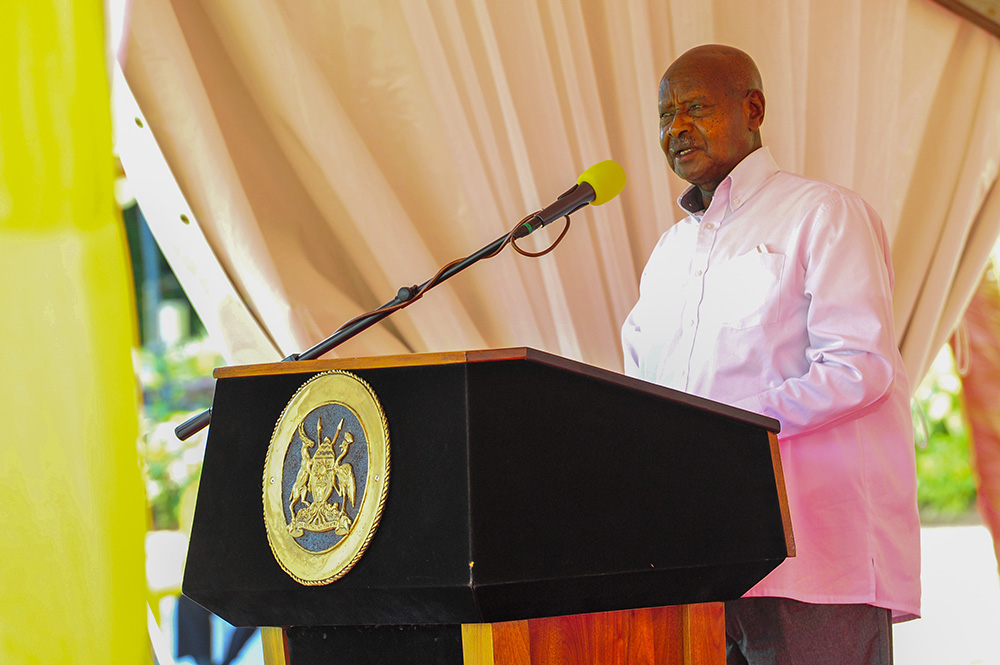
Museveni hailed the Ugandan Lohana community and implored the international Lohana community investors to take advantage of the huge raw material base and invest in Uganda.
“Lohanas like the Ruparelias and the Madhvanis have invited you from other parts of the world. I thank them so much because this economy can grow to a trillion if you add value to our raw materials
We have got a large spectrum and quantity of raw materials,” Museveni said.
Tycoon Sudhir Ruparelia, The Chairman Board of Trustees of the Lohana Community in Uganda made a case for investing in Uganda as it is in this country that he has invested to be recognised as the wealthiest individual in Africa.
“Uganda has many natural resources, a young and increasingly educated workforce, steadily rising middle income and more stable in governance including microeconomic policies which makes an idea of this nation for a long term investment,” Sudhir said.

Sudhir described President Museveni as foresighted, supportive of the business communities in Uganda and is always willing to listen to all business entrepreneurs whenever the need arises.
Invest Here
President Museveni further highlighted seven key clusters of raw material base in Uganda and implored the investors to exploit them with emphasis on value addition. They are;
- Agro-processing (fruits, oil seeds, agricultural products)
- Minerals (iron ore, steel, copper, phosphates, cobalt, gold, nickle, lithium and niobium)
- Freshwater resources to facilitate fish farming
- Forest products (furniture, ceiling boards, paper Industry)
- Knowledge sectors like the automobile industry
- Services sector
- Pathogenic economy
‘Manufacture here’
“These human diseases are a problem but also a very big opportunity,” said Museveni. “Our scientists here discovered one substance called Covidex, which cured many people of corona. Uganda only lost 1,600 people to corona.”
He also told the meeting that Uganda is on the right track with the production of motor vehicles and will soon stop importing them.
“We have designed our own buses and electric cars. I don’t want to hear about assembling, that one I will not accept. We must manufacture and fabricate here, not assemble.”
The President also told the Lohana business community that things are looking up in the country and the regional market has expanded over the years.
“Africa is big but fragmented politically. That is why we revived the East African Community. We now have a ready market of 300 million people. Recently, we were in Algeria and they say Ugandan milk is the best and much better than they were getting from Ukraine and Russia and that they are ready to take Ugandan powdered milk. That is what they like most.”
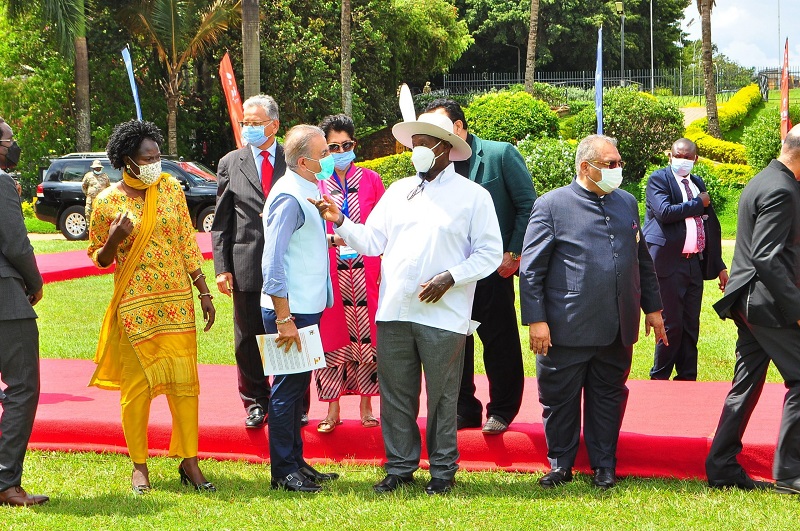
‘Symbiotic relationship’
Museveni also welcomed Lohana businessmen to Uganda, saying the Asian people played a positive role in boosting Uganda’s trade.
“In my village of Ntungamo, we had four Indians and two Arabs, and our relationship was symbiotic. For us we are farmers and cattle keepers and Indians were traders, bringing what we needed from far away and buying our products,” he said.
“I used to sell milk to them in 1952.”
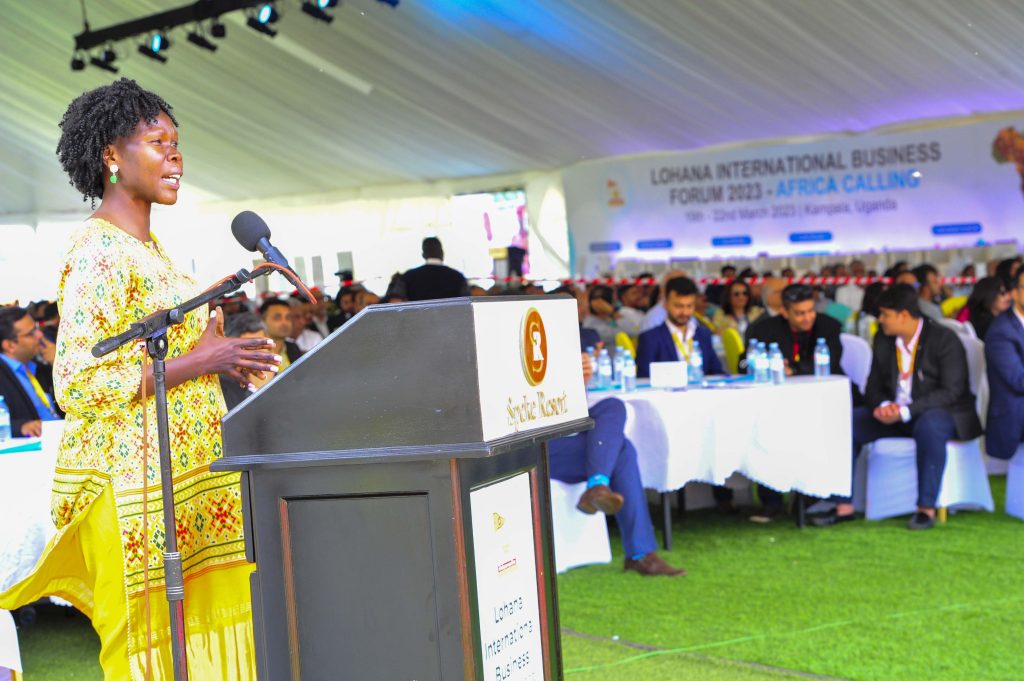
The State Minister of Finance for Investment and Privatization, Evelyn Anite, said Uganda now boasts of over 1,900 factories owned by Indians and 900 by Chinese.
She said they have interested the Lohana Business Community to invest in various virgin ventures, including pharmaceuticals and edible oil.
“Today, we import pharmaceutical products worth $100m (sh377.5b) and we import edible oil worth $10m (sh37.7b) every year. We have interested them to come invest in the pharmaceuticals sector and edible oil so that we avoid importation and improve our exports,” said Anite.
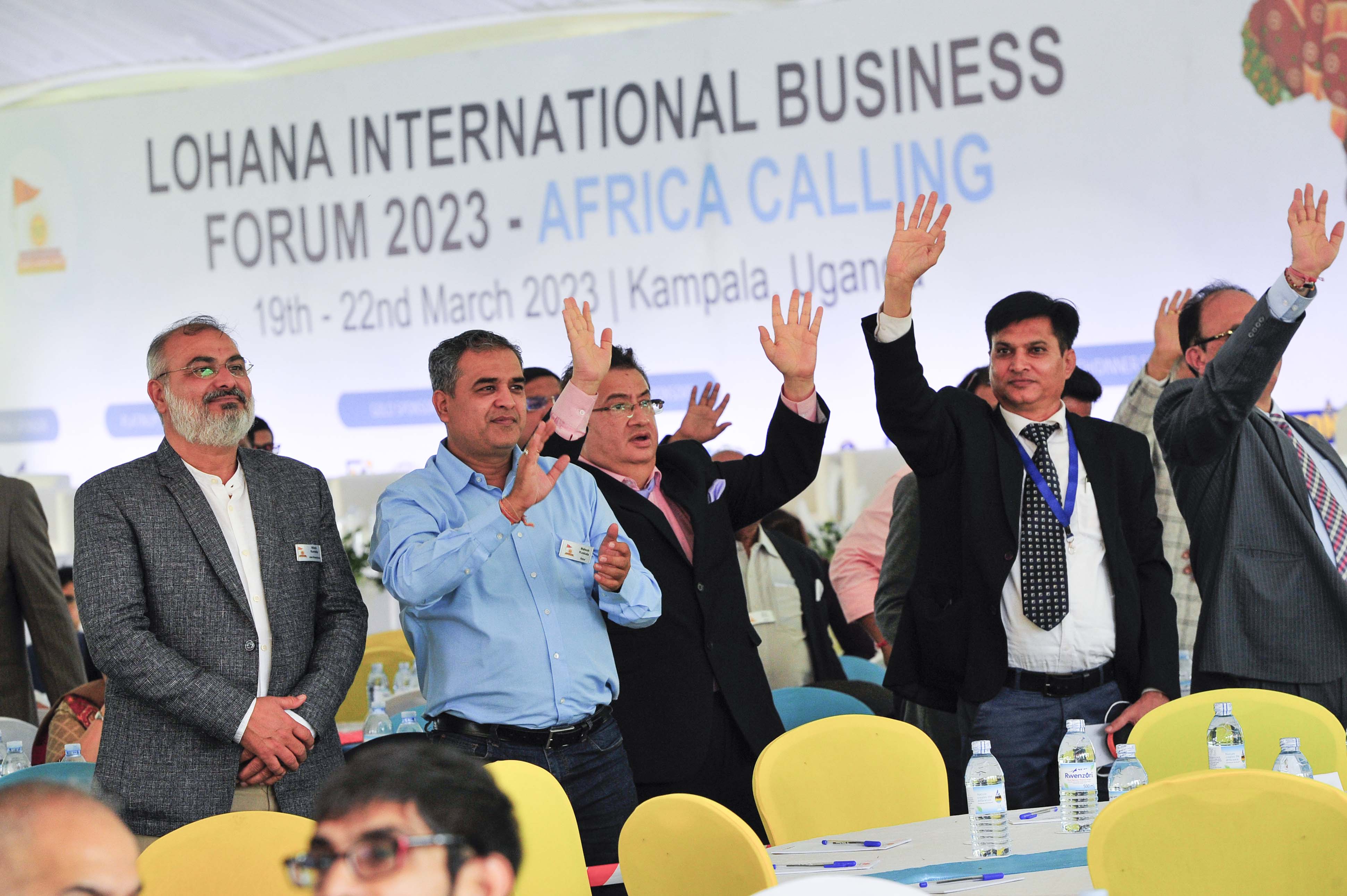
“And your Excellency, we told them that your policy is that for every product manufactured in Uganda will be bought by Ugandans.”
Odrek Rwabwogo, the chairman of the Presidential Advisory Committee on Export and Industrial Development (PACEID), deals worth billions of dollars have been reached with different companies on the sidelines of the business forum in the fields of agriculture, pharmaceuticals, biorefinery and mineral processing.
The Lohana International Business Forum dubbed ‘Africa Calling’ attracted over 750 business elite and investors from 139 cities, representing 22 countries and from 29 businesses and services sectors from the influential global Lohana Indian community.
The countries represented included India, Kenya, UK, Tanzania, United Arab Emirates (UAE), USA, DR Congo, Canada, Portugal, Oman, Angola, Mozambique, South Sudan, Germany, South Africa, Madagascar and Uganda.
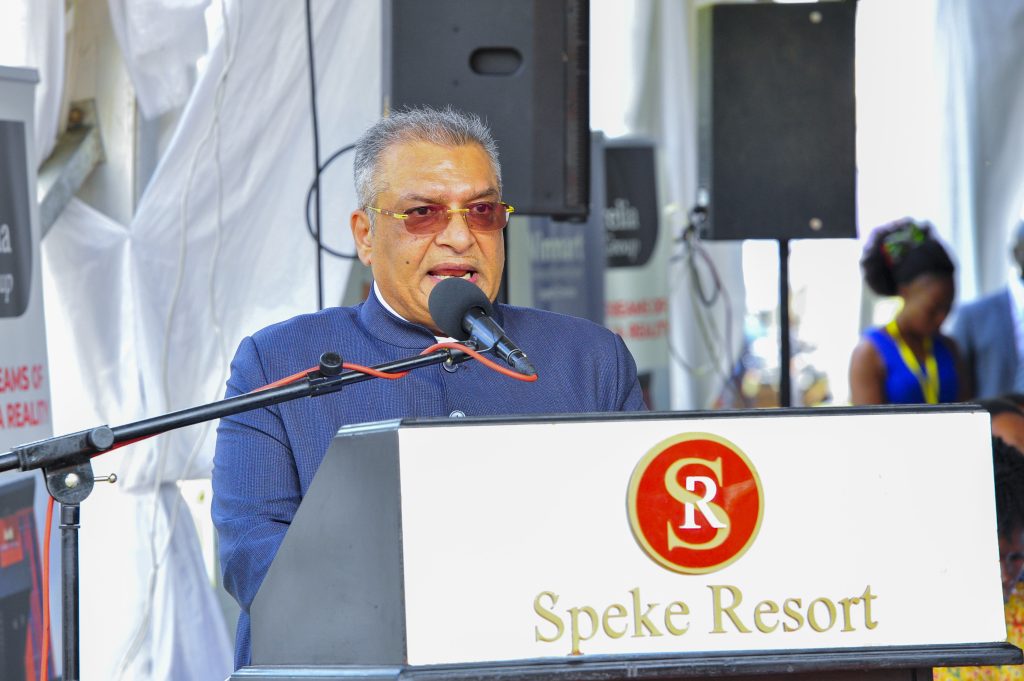
The forum showcased opportunities for business and investment in Uganda and provided a platform for Lohana delegates to promote their companies to the Ugandan business community.
In Uganda, the Lohana community form one of the strongest investment and business blocs and includes luminaries like Ruparelia Group (real estate and hospitality), Madhvani and Mehta (sugar) and House of Dawda (processed foods).
The Lohana Indian Community has been in Uganda for over 150 years and according to UIA’s Rwakakamba, they have a global network of USD 40 billion.
If you would like your article/opinion to be published on Uganda’s most authoritative news platform, send your submission on: [email protected]. You can also follow DailyExpress on WhatsApp and on Twitter (X) for realtime updates.



